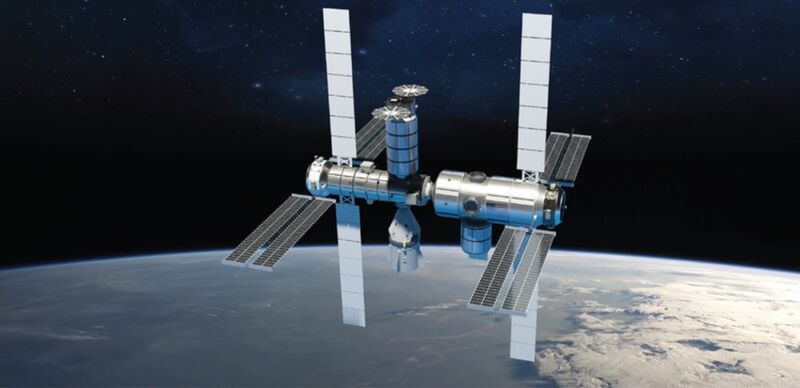
Nearly two years ago, NASA placed its bets to develop commercial space stations on four companies—Blue Origin, Nanoracks, Northrop Grumman, and Axiom Space. Now, as the US space agency looks to find a successor to the International Space Station in low-Earth orbit, this landscape is shifting dramatically.
At the International Astronautical Congress meeting this week in Azerbaijan, sources report that there is widespread speculation that one of these four companies, Northrop Grumman, is dropping out of the competition. Northrop's plan had been to leverage its successful Cygnus spacecraft design to build a free-flying space station.
However, Northrop no longer plans to do so. Rather, it will join the venture backed by Voyager Space, which is partnering with Europe-based Airbus to develop a commercial space station. It's likely that Northrop would provide cargo transportation services, with Cygnus as part of the team. Officials from Voyager and Northrop Grumman declined to comment on the change in strategy, which could be announced soon.
Et tu, Blue?
Other changes appear likely with the commercial space station program. Multiple sources have told Ars that Blue Origin, which proposed a lavish station concept called 'Orbital Reef,' is hedging on its plans. Sources have indicated that Blue Origin founder Jeff Bezos is not particularly interested in a low-Earth orbit space station, preferring instead to focus on the company's efforts to develop a lunar lander and other Moon infrastructure.
Last week, CNBC reported that Blue Origin and its primary partner on Orbital Reef, Sierra Space, were reevaluating their partnership as it was "on rocky footing." The publication reports that Blue Origin and Sierra Space will likely go their separate ways, and it's unclear whether the companies would pursue individual space station efforts.
NASA has a lot riding on these initiatives. The agency plans to operate the International Space Station in conjunction with its partners until 2030, after which time it intends to transition to leasing time on commercial space stations. NASA officials have said repeatedly that they do not want to have a gap in having a place for its astronauts to live and work in orbit around Earth.
The space agency committed more than half a billion dollars to development grants to four companies two years ago. Three of them, Blue Origin, Nanoracks, and Northrop, were to build free-flying stations. The fourth company, Axiom, plans to build modules that are initially connected to the space station but that would eventually separate to form an independent space station. At some point in the next year or two, NASA plans to commit a larger chunk of funding as the commercial space station vendors move into hardware construction and testing.
But this commercial space station program has been somewhat rocky. The funding provided by NASA to date has only allowed limited development, and Congress has been slow to adequately fund the initiative. Each of the participants has also faced significant questions.
Axiom Space has had to scramble to raise hundreds of millions of dollars. Northrop was uncertain that the commercial market existed beyond guaranteed contracts to house NASA astronauts, and this is likely what led to its decision to drop a bid. Voyager had to shuffle its team as Lockheed Martin left and Airbus came in. And there have been persistent concerns about Bezos' commitment to the Orbital Reef project.
Overall program not in jeopardy
Now, the potential loss of one or two of the four initial competitors—the Blue Origin and Northrop-led teams—would seem to signal troubled waters ahead. However, this may not be the case. Sources indicate that the commercial space station program is evolving rather than ending.
For Axiom and Voyager Space, their plans to develop commercial stations are a core part of their business plans going forward. They are likely to remain committed in the years ahead.
And there are new entrants, as well. A well-funded startup, Vast Space, has indicated its interest in private space stations and could launch its first habitation module as early as 2025. SpaceX, too, has said it could use the massive Starship vehicle as a commercial space station, flying customizable missions.
The question for NASA is which of these companies has the right mix of funding, desire, and ability to put a commercial habitat in space before the end of the 2020s. And then the agency must act decisively, with adequate funding, to help its partners through the difficult process of building, qualifying, and flying human-rated hardware in orbit.
reader comments
168